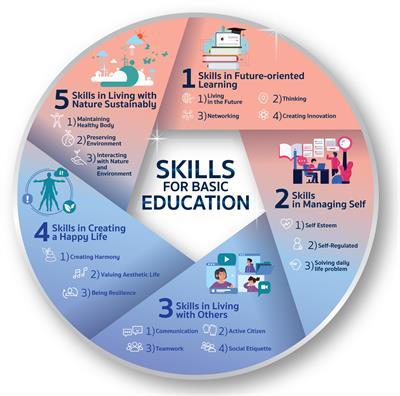Curriculum Manager: Essential Skills, roles, and Career Pathways Explained
are you passionate about shaping educational experiences and leveraging technology to enhance student outcomes? The role of a Curriculum Manager is rapidly gaining prominence in universities, colleges, and schools, especially as institutions embrace digital change and personalized learning. In this complete guide, we’ll take you through the essential skills, day-to-day responsibilities, benefits, and career pathways of a Curriculum Manager in the fast-evolving world of education technology.
What is a Curriculum Manager?
A Curriculum Manager is an education professional who develops, oversees, and continuously improves the curriculum offered by an educational institution. In the context of education technology, this role integrates cutting-edge tech solutions to create dynamic, flexible, and inclusive learning environments. Curriculum Managers work closely with faculty, management, and IT teams to ensure curricula meet academic standards and prepare students for the modern workforce.
Key Roles and Responsibilities of a curriculum Manager
Curriculum Managers have a multifaceted role, influencing program design, learning outcomes, and the integration of technology. If you’re aiming for this career at a university, college, or school, here’s what you can expect:
- Curriculum Growth: Design, modify, and curate curriculum frameworks catering to diverse student needs and emerging trends in education technology.
- Quality Assurance: Ensure curricular standards align with national and institutional benchmarks.
- Instructional Design: Collaborate with teachers and faculty to integrate digital resources,blended learning,and innovative instructional strategies.
- Data Analysis: Assess the effectiveness of curriculum programs using quantitative and qualitative data.
- Professional Development: Organize and lead training sessions for educators on adopting new technologies and instructional methods.
- Stakeholder Collaboration: Work with students,teachers,administrators,and external partners to gather feedback and refine curricula.
- Regulatory Compliance: Monitor and respond to changes in education policy and accreditation requirements.
- Project Management: Manage curriculum rollouts, pilot programs, and technology implementations within time and budget constraints.
essential Skills for Prosperous Curriculum Managers
To excel as a Curriculum Manager in education technology, you need a blend of hard and soft skills. Here are some key competencies sought by schools, colleges, and universities:
Technical Skills
- Education Technology Expertise: Familiarity with learning Management Systems (LMS), e-learning platforms, and assessment tools.
- Data Literacy: Ability to interpret student performance data and use analytics for continuous improvement.
- Instructional Design Principles: Knowledge of curriculum frameworks such as backward design, Worldwide Design for Learning (UDL), and differentiated instruction.
Soft Skills
- Leadership and Teamwork: Lead cross-functional teams and cultivate a culture of collaboration.
- problem Solving: Address curricular gaps and technical challenges proactively.
- Adaptability: Respond quickly to technological shifts and evolving educational needs.
- Communication: clearly articulate curriculum objectives, changes, and value to varied stakeholders.
- Project Management: Plan, execute, and evaluate curriculum projects efficiently.
Education and Qualifications
Most employers look for Curriculum Managers with an advanced degree and relevant experience. Common requirements include:
- Minimum Education: Bachelor’s in Education, Instructional Design, Curriculum Development, or a related field.Master’s or Doctoral degrees are preferred for leadership roles in universities and colleges.
- Certifications: Certificates in instructional design, education technology, or project management can enhance your profile.
- Teaching Experience: Hands-on teaching or training experience adds great value during recruitment.
Career pathways for Curriculum Managers in Education Technology
The Curriculum Manager profession offers a versatile and rewarding career trajectory. Depending on your interests and qualifications, you can pursue roles such as:
- Lead Instructional Designer
- Academic Program Director
- Chief Learning Officer
- Education Technology Coordinator
- Director of Curriculum and Instruction
- Consultant for EdTech Firms
Many Curriculum Managers also venture into policy development, research, or educational consulting, broadening their impact within the sector.
Benefits of Being a Curriculum Manager
If you’re considering a Curriculum Manager position, here are a few compelling reasons to make the leap:
- Meaningful Impact: Shape the future of education and student success using innovative technologies.
- Career Growth: Opportunities for advancement in academic leadership, educational technology, and curriculum design.
- Competitive Salaries: Attractive pay packages in higher education and technology-centered schools.
- Work-life Balance: many institutions offer flexible schedules and remote work options.
- Continuous Learning: Stay updated on the latest trends in digital education and pedagogy.
Practical Tips for Landing a Curriculum Manager Job
Getting hired as a Curriculum Manager in education technology is competitive.Follow these tips to stand out in your job search:
- Build a Strong Portfolio: Showcase curriculum projects, instructional design samples, and technology integrations you’ve led.
- Network Strategically: Connect with education tech professionals, attend conferences, and engage in online communities.
- Stay Current: Keep up-to-date with innovations in learning management systems, AI in education, and blended learning models.
- Highlight leadership Experience: Demonstrate your ability to guide teams and manage projects.
- Prepare for Interviews: Practice explaining complex curriculum decisions and how you’ve adapted to technology changes.
- Pursue Further Credentials: Enroll in relevant courses and gain certifications to increase your employability.
Challenges Faced by Curriculum Managers
While the role offers many rewards, curriculum Managers in education technology must navigate some common challenges:
- Rapid Technological Change: Keeping pace with evolving tools and platforms.
- Budget Constraints: Maximizing impact with limited resources.
- Resistance to Change: Managing stakeholder concerns about new curricular approaches.
- Ensuring Equity: Designing curricula that are accessible and inclusive for all learners.
Being aware of these challenges prepares you to thrive and innovate in the role.
Conclusion: Powering the Future of Education through Curriculum Management
As a Curriculum Manager working in education technology at universities, colleges, or schools, you hold the keys to shaping the future of learning. Armed with the right skills and a visionary mindset, you’ll drive academic excellence and embrace the possibilities of digital instruction.The career pathways, benefits, and tips highlighted in this guide will help you prepare for and excel in this influential role. If you’re ready to make a difference, now is the time to step up and pursue a rewarding future as a curriculum manager in the world of education technology.

